The Second Draft Project debuts with Lora King AI-powered video chat
By Jacqueline Nkhonjera Artificial intelligence is expanding Black oral history archives on the West Coast.
The Charlotta Bass Journalism & Justice Lab debuted the “Second Draft Project” on Feb. 7, 2023, in collaboration with Lora King — daughter of the late Rodney King and founder of the Rodney King foundation.
The initiative centers Black Americans who are connected to pivotal moments in the nation’s fight for social justice by inviting them to illuminate, and even correct, history’s often skewed record. The debut event featured a first look at King’s “virtual human interview” — an interactive biography which enables audiences to ask questions that prompt real-time responses from pre-recorded video interviews. Additionally, the program included a candid conversation between the founder of the Bass Lab, Dr. Allissa Richardson, and King herself.
The dialogue took place in the heart of Wallis Annenberg Hall, where students, faculty, members of the King family, and supporters of King’s work gathered to hear her speak about her father.
“I’ll be honest, I feel safe with you guys,” she shared, adding: “It was hard, and today is hard but I know it’s necessary."
A city on fire
King was only 8 years old on April 29, 1992, but she remembers the smoke that engulfed Los Angeles that evening. Local shops were set aflame, indignant voices echoed through chaos ridden streets, and the sound of loud TVs bled through neighborhood window sills and doors.
Black people across the city watched the news in horror as four white Los Angeles policemen were acquitted for the severe beating of her father, Rodney King, the previous year. The riots — commonly referred to as the LA riots or the LA uprising — began in response to years of rising tensions between Black communities and the LAPD. This event helped shape the face of American anti-police brutality movements and is now known as one of the most devastating civil disruptions in American history. Its effects reverberated across the state, the country, and the world at large.
What is often forgotten is the effect that this event had on the people closest to Rodney King. “I didn’t understand why people didn’t get along. I didn’t understand why Black men were targeted so much. My world didn’t make sense. It still doesn’t make sense,” his daughter Lora shared with the Annenberg audience this month.
Notes on hope
Woven into King’s and Richardson’s conversation about grief, the aftermath of her father's assault, and the importance of mental health resources for victims of police brutality among other topics, were moments of laughter and spirited reflections on her father’s personality. “My dad was so goofy,” King said, adding: “He was very spontaneous. He loved everybody.” Despite his shy character “He used his voice when he was able to, to create change, to give people hope.”
“When you are brave enough to use your hurt, it can change people.”
With reference to the virtual human interview, Dr. Richardson reminded audiences that while “some of the details are kind of difficult to hear…there’s a lot of joy and hope in the message that Lora shares every time she speaks.” Throughout the dialogue, audience members joined Lora in both tears and laughter. “When you are brave enough to use your hurt, it can change people,” she emphasized.
After the event, a pop-up installation run by the USC Digital Repository and Bass Lab Fellows allowed event attendees to test out King’s virtual human for themselves. King’s family had a chance to interact with AI Lora as well. As a fellow, I was able to witness the first conversation Lora’s mother had with her virtual human. “I wish Rod was here to see this,” she remarked.
Memorializing humanity
Launching our virtual human series with Lora King is an undertaking that honors a story that our namesake, Charlotta Bass, would have championed. Our mission to save, study, and share Black media that changed the world is deeply inspired by our commitment to humanity. Through memorializing victims of police brutality, we seek to humanize the people behind the headlines and shed light on those who have moved our country toward justice. Lora King is one of those people. The work that she carries out through the Rodney King foundation, along with her commitment to providing mental health resources for victims of police brutality, invites us to come together and—in the words of her father—get along.
Jacqueline Nkhonjera is a Dual Masters candidate in Global Media and Communications at the University of Southern California and the London School of Economics.

